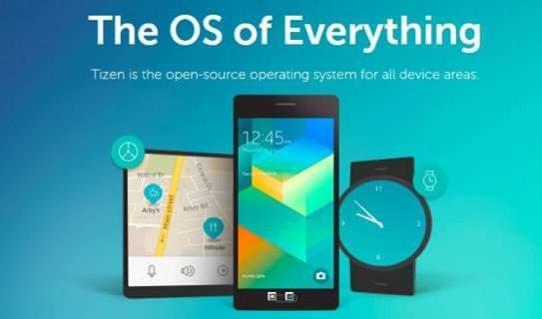
Samsung has just teased the highly-anticipated release of Tizen OS 4.0 and Tizen RT component aka Internet of Things (IoT) chipset for lightweight devices, at the recently held Tizen Developers Conference in San Francisco.

With Tizen gradually becoming the world's most popular Linux-based embedded OS for Samsung's portable devices, the South Korean smartphone giant has made it imperative to feature IoT-based chipset supporting Tizen OS on its upcoming flagship devices like the Z4 smartphone which will see its debut launch in India on May 19.
Tizen's growth has been bolstered by the arrival of connected home devices like Smart TVs and Smart Refrigerators. Tizen OS 4.0 is expected to take this level of connectivity between devices to the next level.
Here's an excerpt of the official announcement from Samsung:
Tizen 4.0 will provide a development environment that can be refined according to the characteristics of various devices by subdividing functional modules. In addition, the Tizen 4.0 platform has been extended to Tizen RT (Real-Time) to involve high-end products such as TVs and mobile devices as well as low-end products such as thermostats, scales, bulbs, and more.
With Samsung's focus resting entirely on IoT and lightweight devices, it has plans to add .NET and Xamarin framework into its Tizen ecosystem in partnership with Microsoft. The company is also expected to develop Tizen RT chipsets in association with ARTIK and Broadlink, which are its primary chipset makers in China.
Smart home device maker Commax (Korea) and the location-based service provider Glympse in the US are also expected to partner Samsung in the making of Tizen-based devices for the future.
Mobile gamers are in for some great news as Samsung's key objective is focused at making more apps and games available for its Tizen-based devices, something along the lines of Asphalt 8 and Temple Run on the Z4.
Samsung's first Tizen RT component aka the ARTIK 053 module is a lightweight IoT chipset with integrated real-time processing capabilities that is aimed at high-performance and stringent security for next-gen Tizen products like home appliances, healthcare devices and industrial automation.








